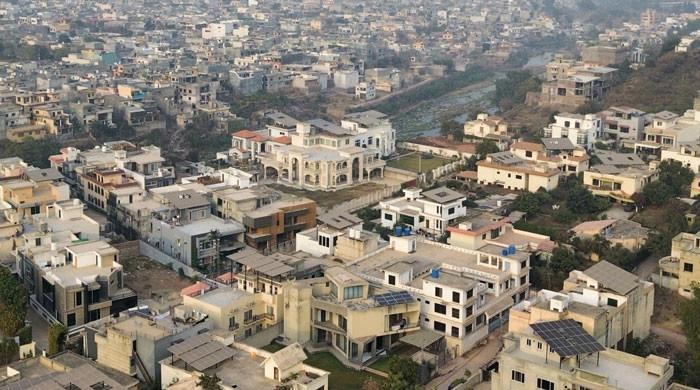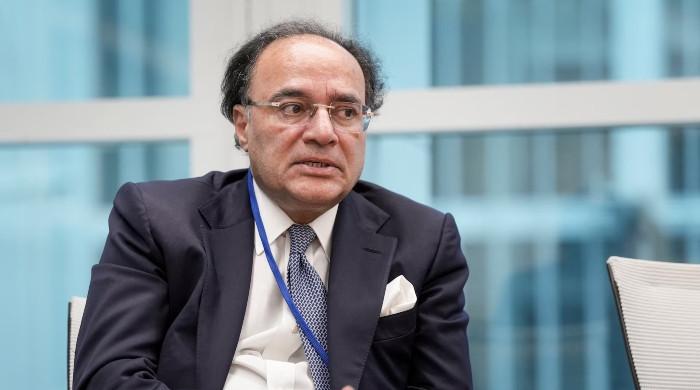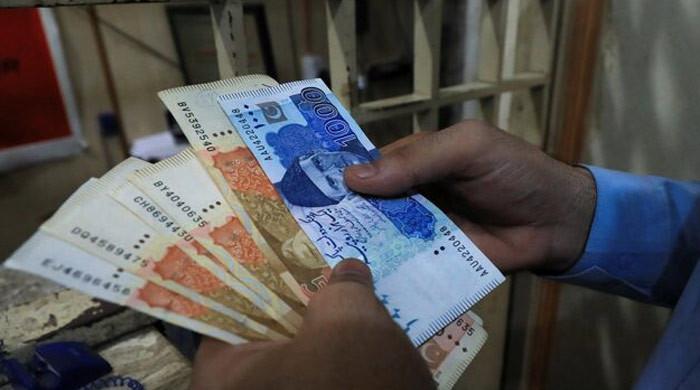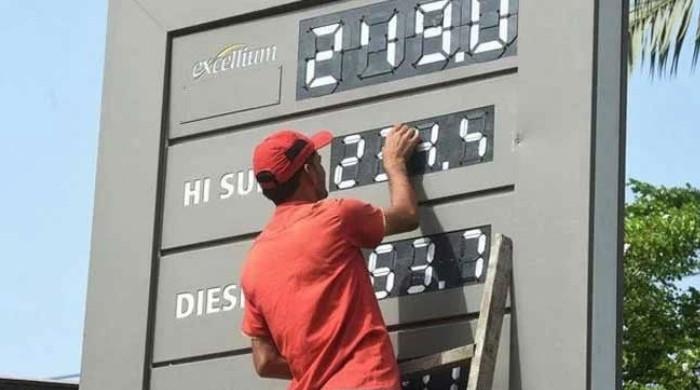PSX breaks all-time record to surge past 114,000 mark
KSE-100 Index surges by 3,370.29 points, or 3.04%, to close at 114,180.5 points
December 12, 2024
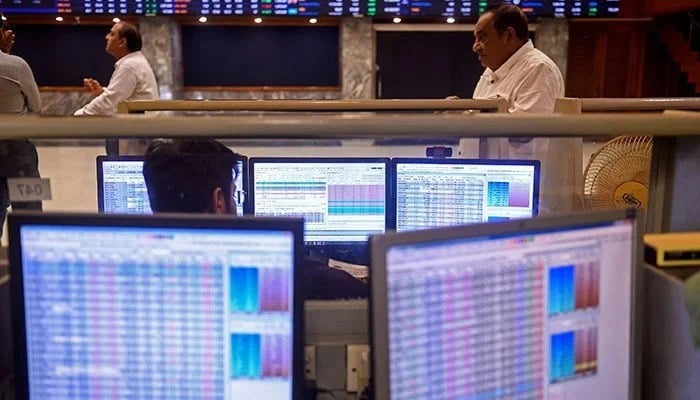
- Positive macro indicators fuel market's record-breaking rally.
- This is KSE-100 Index's third highest ever points gain.
- Successive rate cuts drive investors from bonds to equities.
The stock market achieved another milestone on Thursday, with the KSE-100 Index zooming past the 114,000-point mark for the first time in its history.
Buoyed by positive macroeconomic indicators, rising investor optimism, and expectations of substantial monetary easing, the benchmark index rocketed to a new record.
The Pakistan Stock Exchange’s (PSX) KSE-100 Index surged by 3,370.29 points, or 3.04%, to close at 114,180.5 points. It also reached an intraday high of 114,408.62, marking another milestone in the market’s ongoing rally.
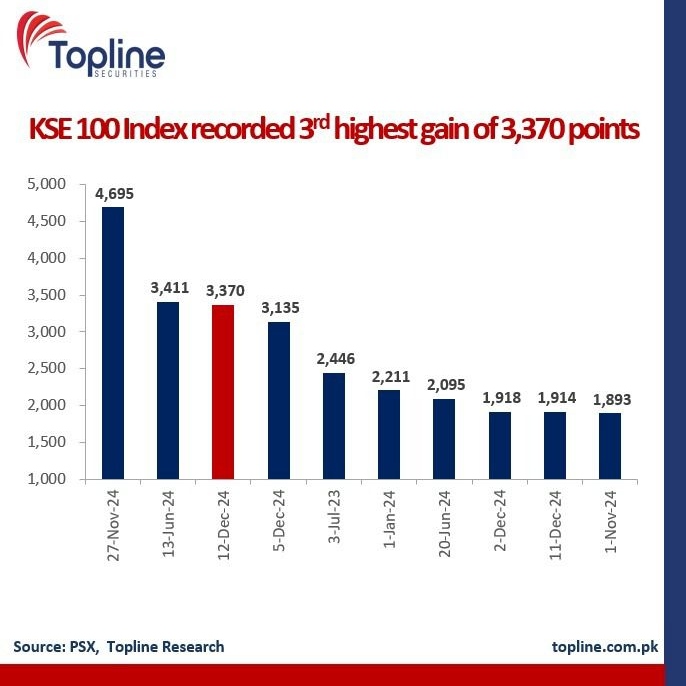
“Liquidity is a very important factor for the stock market. With successive rate cuts, investors have shifted from bonds to equities,” said Sana Tawfik, Head of Research at Arif Habib Limited.
“The IMF programme and other economic measures have also brought significant improvements in key indicators, including inflation and foreign exchange reserves,” she added.
Pakistan’s Current Account Deficit (CAD) recorded a sharp 79% year-on-year decline, narrowing to $217 million in the first two months of FY2025 with August even reflecting a surplus of $29 million, supported by strong remittance inflows and stable export earnings.
Exports are projected to reach $33 billion by the end of FY2025, driven by enhanced domestic production, exchange rate stability, and robust growth in major trading partner economies. Service exports, particularly in IT, are expected to climb from $3.2 billion in FY2024 to $4.2 billion in FY2025.
Also, there's a forecast of remittances increasing to $33.5 billion in FY2025, aided by reduced global inflation and government initiatives promoting formal banking channels. The government has allocated Rs80 billion for transaction rebates and incentives to encourage remittance flows through legal channels, contributing to economic stability.
The government’s decision to reduce Treasury Bill (T-bill) yields by up to 100 basis points on Wednesday has further fuelled expectations of monetary easing. The auction raised Rs1.256 trillion against a target of Rs1.2 trillion, with the highest bids for longer-tenor papers, signalling investor confidence in the economy.
The largest yield cut of 100 basis points was for three-month papers, reducing the rate to 11.99% from 12.99%. Analysts predict the State Bank of Pakistan (SBP) may cut the policy rate by up to 200 basis points at its December 16 meeting, reflecting declining inflation, which hit 4.9% in November, the lowest since April 2018.
The banking sector’s Advance-to-Deposit Ratio (ADR) improved to 47.8% as of November 29, 2024, from 44.3% in October, with banks working to meet the mandatory 50% threshold by December 31. However, failure to comply could result in additional taxes on income from government securities.
Additionally, the government revised profit rates on National Savings Schemes (NSS), with the Savings Account rate dropping by 250 basis points to 13.5%. These changes are expected to redirect funds into equities, further fuelling market activity.
Economic activity remains robust, highlighted by a 62% year-on-year increase in passenger car sales in November and a 50% rise during the first five months of FY2025. Additionally, the Asian Development Bank (ADB) approved $530 million in loans to modernise Pakistan's power distribution infrastructure and enhance social protection programs.
Saudi Arabia’s extension of a $3 billion deposit and trade agreements worth $560 million have strengthened foreign reserves and boosted investor sentiment, underscoring confidence in Pakistan's economic recovery.
The PSX’s rally reflects growing confidence in Pakistan’s economic stability, bolstered by declining inflation, robust remittance inflows, and improved liquidity.
As the SBP’s December 16 monetary policy meeting approaches, expectations of significant rate cuts are likely to sustain investor momentum, ensuring continued market growth.






